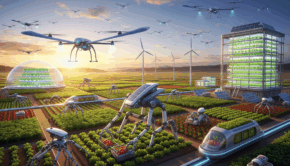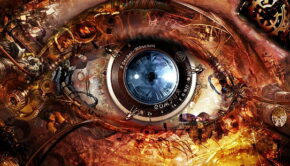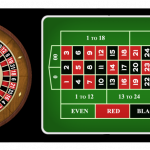The Future of Reading and Writing in the Age of Digital Media
The world of the 21 century is changing rapidly. Technologies and information are spreading all over the globe with unimaginable speed, and they affect our society in the most peculiar ways.
Just by researching how the entertainment industry has changed, with all virtual reality technologies and high-resolution devices. But what about the future of reading and writing? In this article, we will explore these questions, particularly how technologies affect writing and how people will read in the upcoming times.
Image source: @zapthedingbat on Flickr
Digital learning
First of all, we need to figure out how tech influences our abilities. The educational system has been altered dramatically in the past 20 years, mainly due to the development of technologies. Most of the schools and classrooms have been equipped with TV screens, computers, wi-fi, etc. So is the process of learning, and thus, the process of writing and reading will change? Most probably the answer is yes. The need for paper materials decreases with each year, and just try to remember when you have written a letter by hand.
Image source: Flickr
What is digital writing?
The answer to that question is pretty obvious: it is any kind of writing that is done in the virtual world, rather than on paper. Modern digital writing is anywhere – on all of the social media platforms, on our e-books, on our laptops. Can you imagine reading Shakespeare while simultaneously going through a dozen of comments at the bottom of the page? Well, know it is a reality of things. We write public texts, collectively. The good example of this tendency is Wikipedia with its editing policy. Writing has also become much more anonymous; its audience has also changed. While in the past the text would be read by several people at the time, now the number goes up to thousands.
The nature of the data has also transformed. We have incredible amounts of information online, but its credibility is questionable. Written and published things have to go through many instances and checks before appearing on paper when texts typed in World Wide Web basically don’t have to be approved by anyone.
Image source: @efradera on Flickr
The Future of Reading
Reading has also gone through numerous changes. First and the biggest one is the appearing of screens. People don’t read from paper anymore – it’s all just computer, phone, or e-book screens. It affects the memorization process and navigation through context. The general transformation of comprehending texts from the screens can be narrowed down to such main points:
1. Reading process involves much more distractions
Whether you read something online or on the social media websites, the reading itself has numerous distractions like commercial banners, pop-up screens, pictures, comments and so on.
2. Memory doesn’t react to touch anymore
Studies have shown that during the reading brain actually responds not only to the text itself but to the sensations of touch. So by eliminating this element, we actually memorize less information comparing to the old-fashioned reading.
3. Meaningless reading
This is, possibly, one of the greatest problems with the digital reading. The amounts of written and visual information that we absorb every day are extremely vast. This leads to our brain dismissing a lot of data, no matter whether it is important or not. This is done in order to optimize our neurological activity and protects the brain from overworking. Future readings online will only straighten this issue and increase problems with anxiety due to the huge information volumes.
To summarize all of the above, let’s answer a simple question. Why is reading and writing important in our lives? We write to share our thoughts, to plan, to educate as well as to learn; we write to love, and we write to inform. Composing texts has been around for centuries and is a basis of any human culture. Will it disappear? It is highly unlikely. It will certainly change, for instance, we can observe emoji entering texts. But it will always exist as a phenomenon, just with the various degrees of transformation. Reading, as a process will also change. Some of the changes might not be very positive, with the shallow data consummating and memory issues. But it brings education, it brings time traveling, fantastic world and unknown territories! People will always strive for a good story, no matter whether it is written on paper or typed online.
About the author:
Emily Watts is a young teacher who works with kids with the implementation of new digital techniques. She has attained a degree in psychology and teaching and thinks that new technologies are the future of education. Emily is very keen to use smartphones and apps, as well as special assignments at https://essayontime.com.au/ to make the process more engaging for the younger audiences that is more familiar with digital devices than pencils. She states that the lack of interactive learning is harming the potential learner’s commitment to studying and reading in particular.












![20 Apps to Reach Your Goals [Infographic]](https://technofaq.org/wp-content/uploads/2018/05/pandasecurity-tracking-apps-to-help-reach-your-goals-150x150.png)






2 Responses to The Future of Reading and Writing in the Age of Digital Media